Puzzle Games
-
 Draw to Smash
Draw to Smash -
 Infinite Craft
Infinite Craft -
 Burning Man 2
Burning Man 2 -
 Home Pin Puzzle
Home Pin Puzzle -
 Little Alchemy
Little Alchemy -
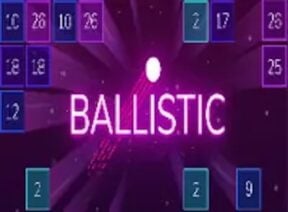 Ballistic
Ballistic -
 String Theory
String Theory -
 The Wall Quiz
The Wall Quiz -
 Rainbow Balls 2048
Rainbow Balls 2048 -
 Crab and Fish
Crab and Fish -
 Winter Holiday Puzzles
Winter Holiday Puzzles -
 Wood Block Tap Away
Wood Block Tap Away -
 Potion Flip
Potion Flip -
 Yes Or No Challenge
Yes Or No Challenge -
 Billionaires
Billionaires -
 Google Minesweeper
Google Minesweeper -
 New Year Balls Merge
New Year Balls Merge -
 Balls 2048
Balls 2048 -
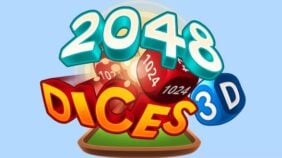 Dices 2048 3D
Dices 2048 3D -
 Hallo Ween Smashy Land
Hallo Ween Smashy Land -
 Card Shuffle Sort
Card Shuffle Sort -
 2048 Solitaire
2048 Solitaire -
 Sugar, Sugar
Sugar, Sugar -
 Tangram Grid
Tangram Grid -
 Shape Balance
Shape Balance -
 Test your Brain: Tricky Quests
Test your Brain: Tricky Quests -
 Who is?
Who is? -
 Test your Brain: Tricky Puzzles
Test your Brain: Tricky Puzzles -
 Test your Brain: Tricky Stories
Test your Brain: Tricky Stories -
 Brain Trainer
Brain Trainer -
 Pipes Puzzle
Pipes Puzzle -
 Find the Differences
Find the Differences -
 Deal or No Deal
Deal or No Deal -
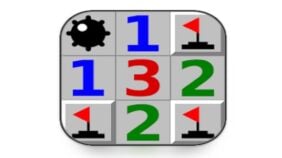 Minesweeper
Minesweeper -
 Bee Connect
Bee Connect -
 Water Sort
Water Sort -
 Curvy Puzzle
Curvy Puzzle -
 DIFF
DIFF -
 Rope Slash
Rope Slash -
 Cannon Strike
Cannon Strike -
 Happy Glass
Happy Glass -
 Popstar
Popstar -
 Falling Balls
Falling Balls -
 Tronix
Tronix -
 Master Sudoku
Master Sudoku -
 Charge It
Charge It -
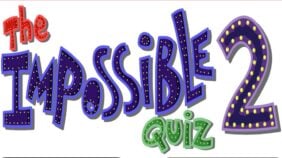 Impossible Quiz 2
Impossible Quiz 2 -
 Impossible Quiz
Impossible Quiz -
 PIN Cracker
PIN Cracker -
 Popcorn Master
Popcorn Master -
 House Painter
House Painter -
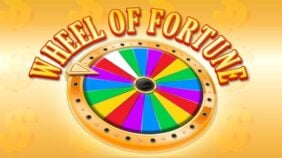 Wheel of Fortune
Wheel of Fortune -
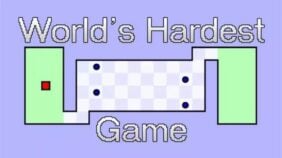 World’s Hardest Game
World’s Hardest Game
Puzzle Games
Puzzle games are a genre of video games that challenge the player’s problem-solving skills, including logic, pattern recognition, sequence solving, and word completion. The genre encompasses a wide range of game types, ensuring there is something to test every aspect of puzzle-solving ability. These games are designed to offer a brain-teasing experience that is both challenging and rewarding, often progressing from relatively simple puzzles to more complex and difficult challenges as the player advances. Popular examples include classic titles like “Tetris,” where players arrange falling blocks to complete lines, and “Sudoku,” which requires filling a grid with numbers without repeating them in any row, column, or square.
The appeal of puzzle games lies in their ability to engage the player’s cognitive functions in a fun and interactive way. They are often seen as a form of mental exercise, as they stimulate the brain and can improve various cognitive skills, such as spatial awareness, memory, and critical thinking. The satisfaction derived from solving a particularly challenging puzzle provides a sense of accomplishment and can boost the player’s confidence in their problem-solving abilities. Moreover, puzzle games are typically easy to learn but hard to master, making them accessible to players of all ages and skill levels. This accessibility, combined with the intrinsic reward system of overcoming obstacles, keeps players coming back for more.
In recent years, the puzzle game genre has evolved to incorporate elements from other genres, blurring the lines between strictly puzzle-based games and those that include puzzle-solving as part of a larger narrative or gameplay mechanic. For example, adventure games often incorporate puzzles as a means of advancing the story, requiring players to solve puzzles to unlock new areas or obtain important items. The integration of story elements with puzzle mechanics has led to the creation of deeply immersive experiences, where the puzzles are not just obstacles but also key components of the game’s narrative and world-building. The versatility and adaptability of puzzle games have ensured their place as a staple of the gaming industry, offering endless possibilities for creativity and innovation.